1O–22.O7
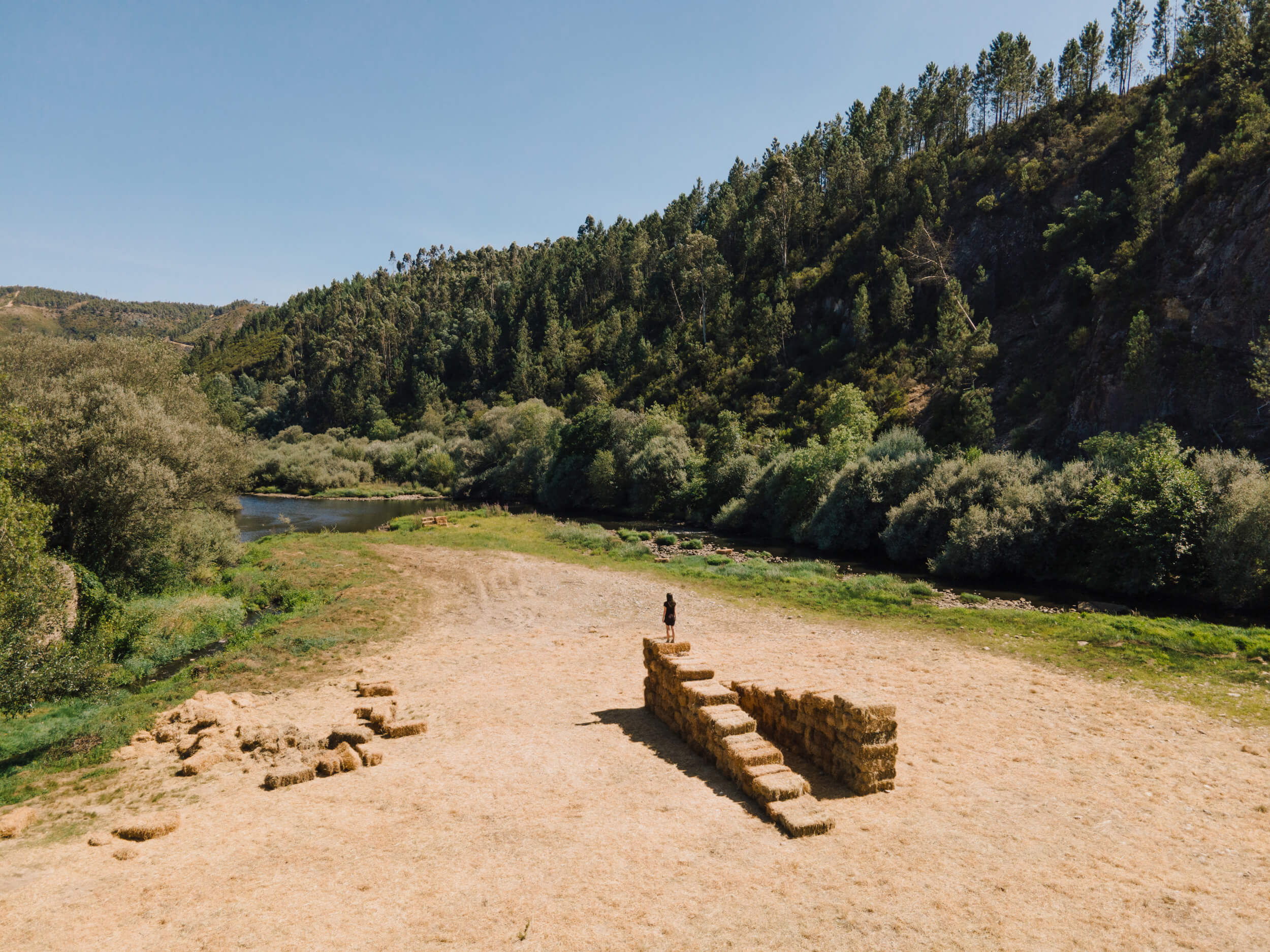
© Alexandre Delmar e Maria Ruivo
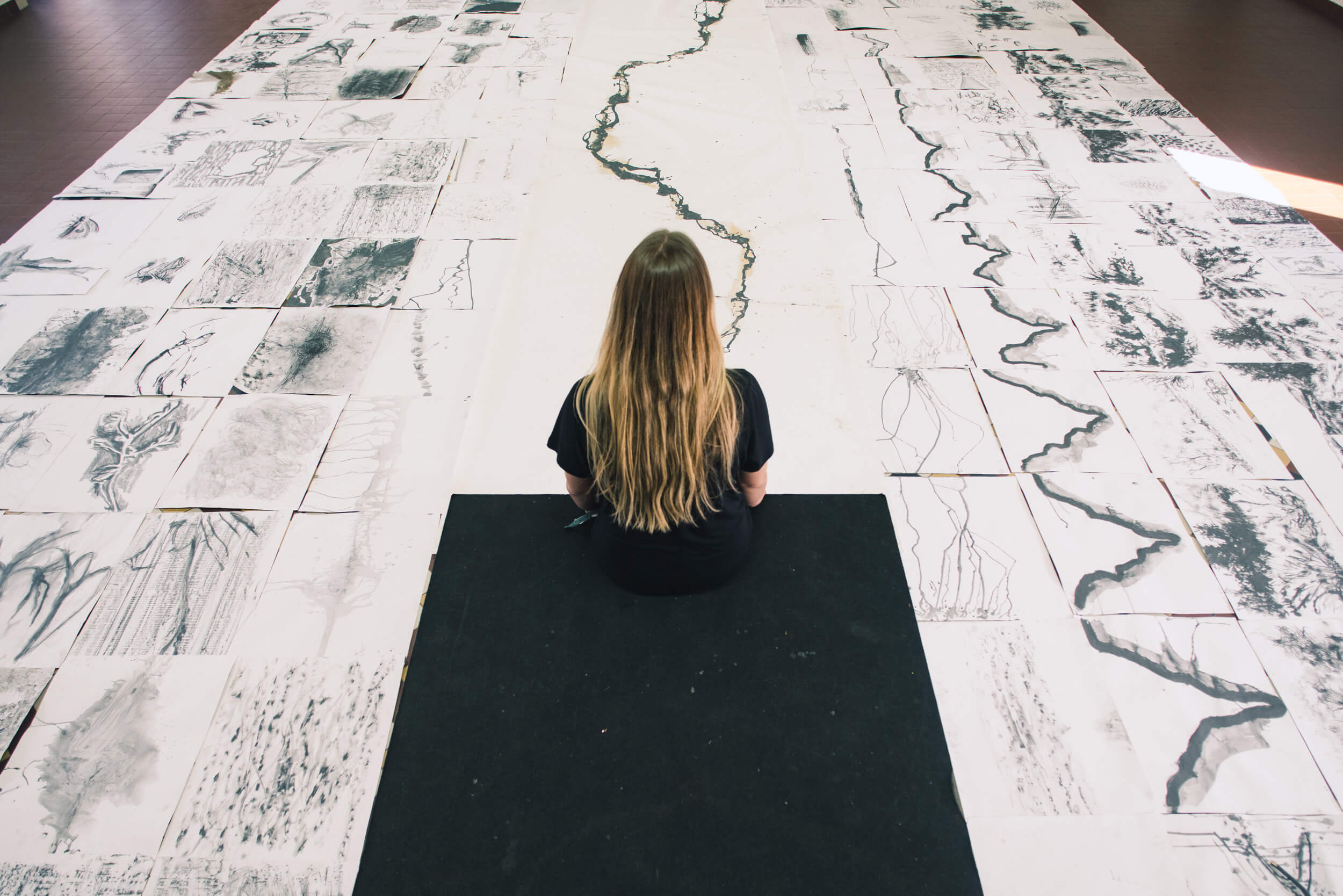
© Alexandre Delmar e Maria Ruivo
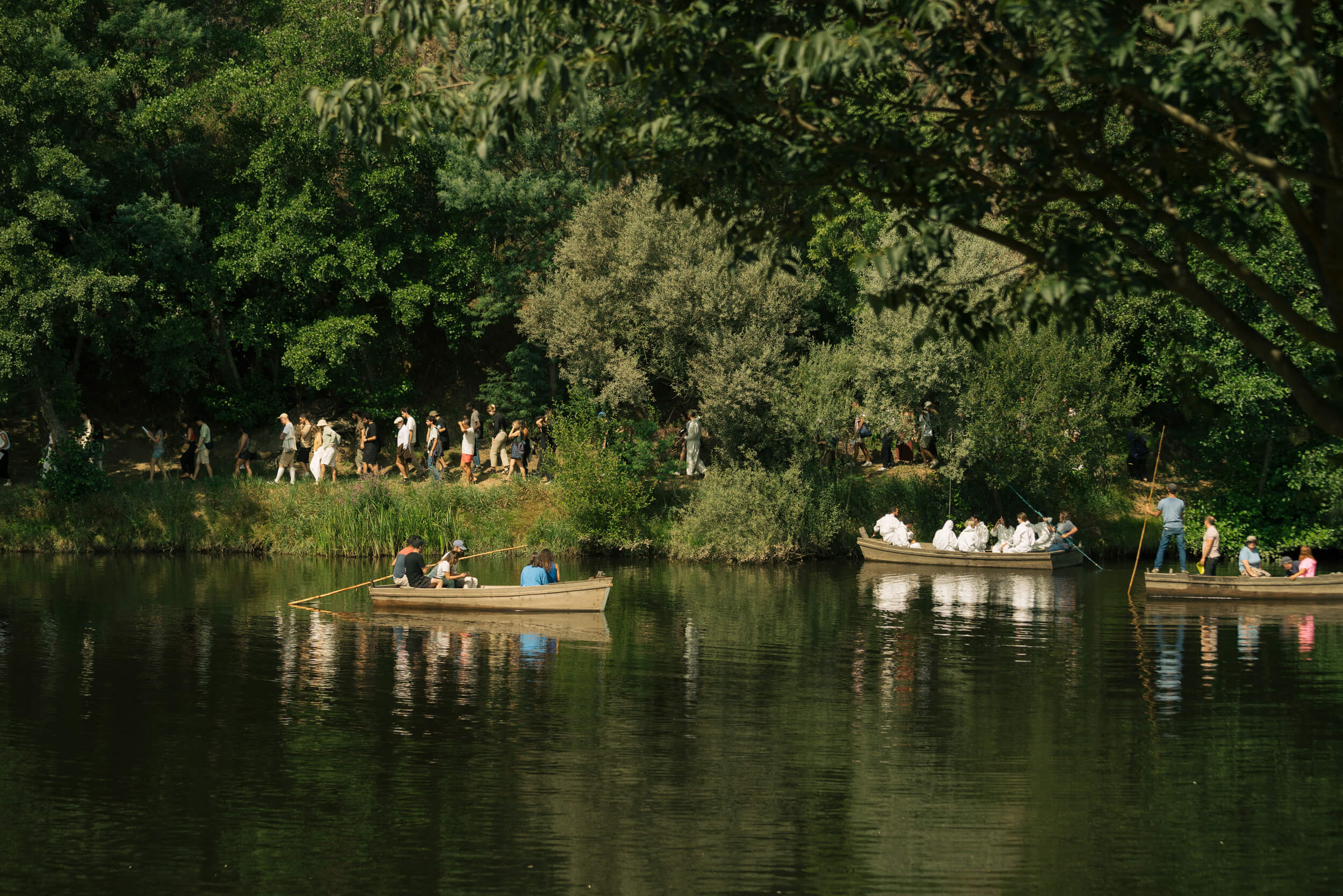
© Alexandre Delmar e Maria Ruivo
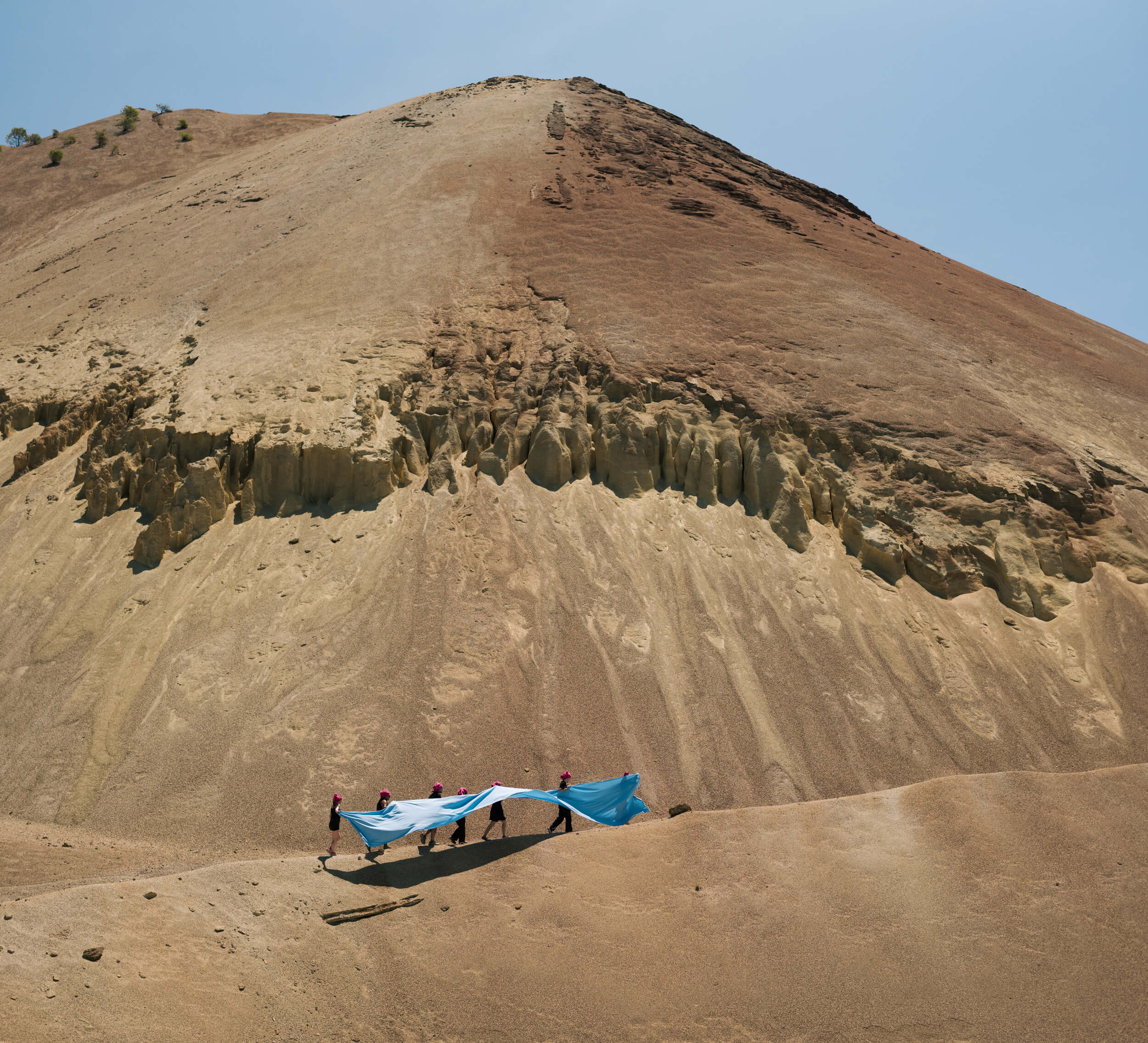
© Alexandre Delmar e Maria Ruivo
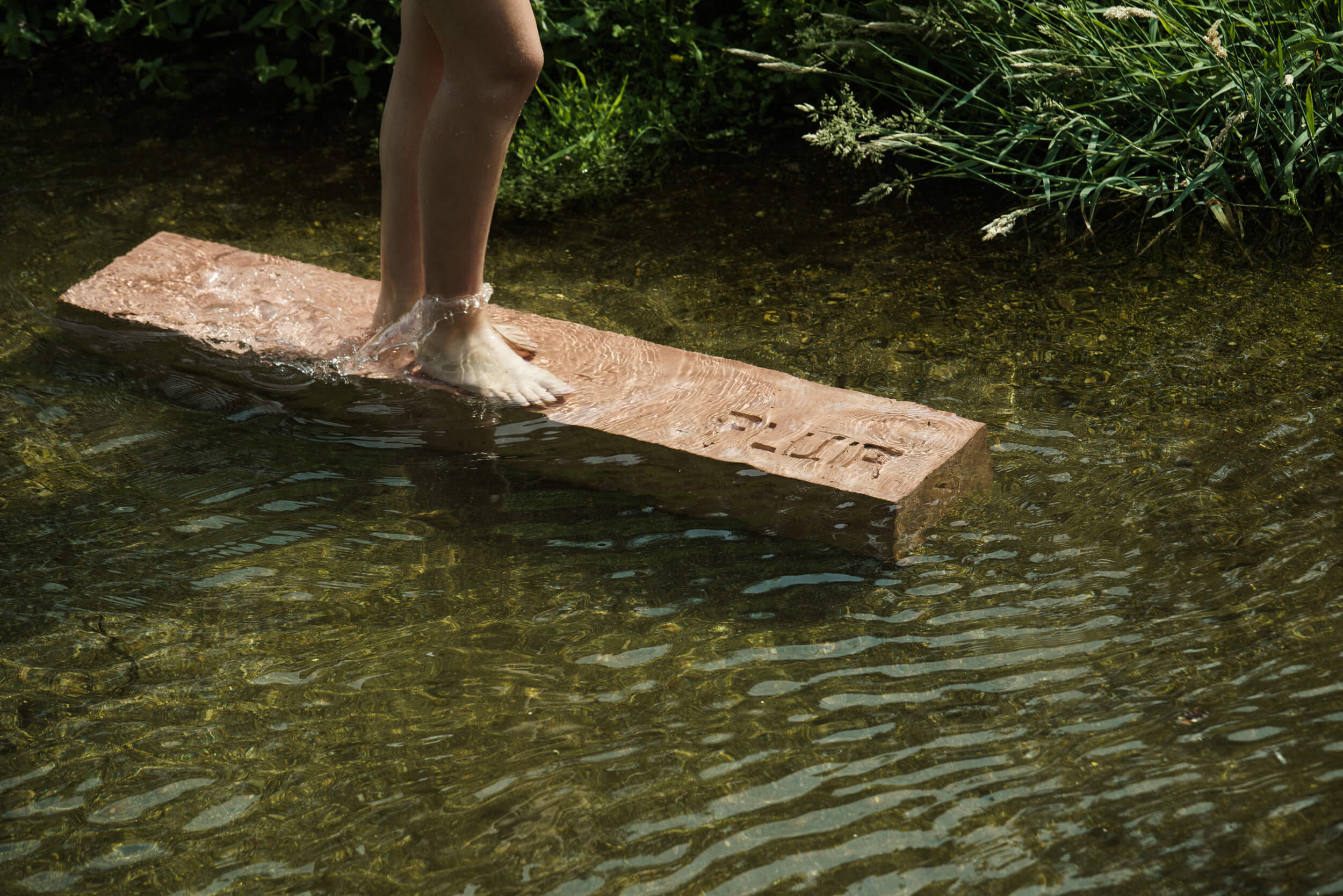
© Alexandre Delmar e Maria Ruivo
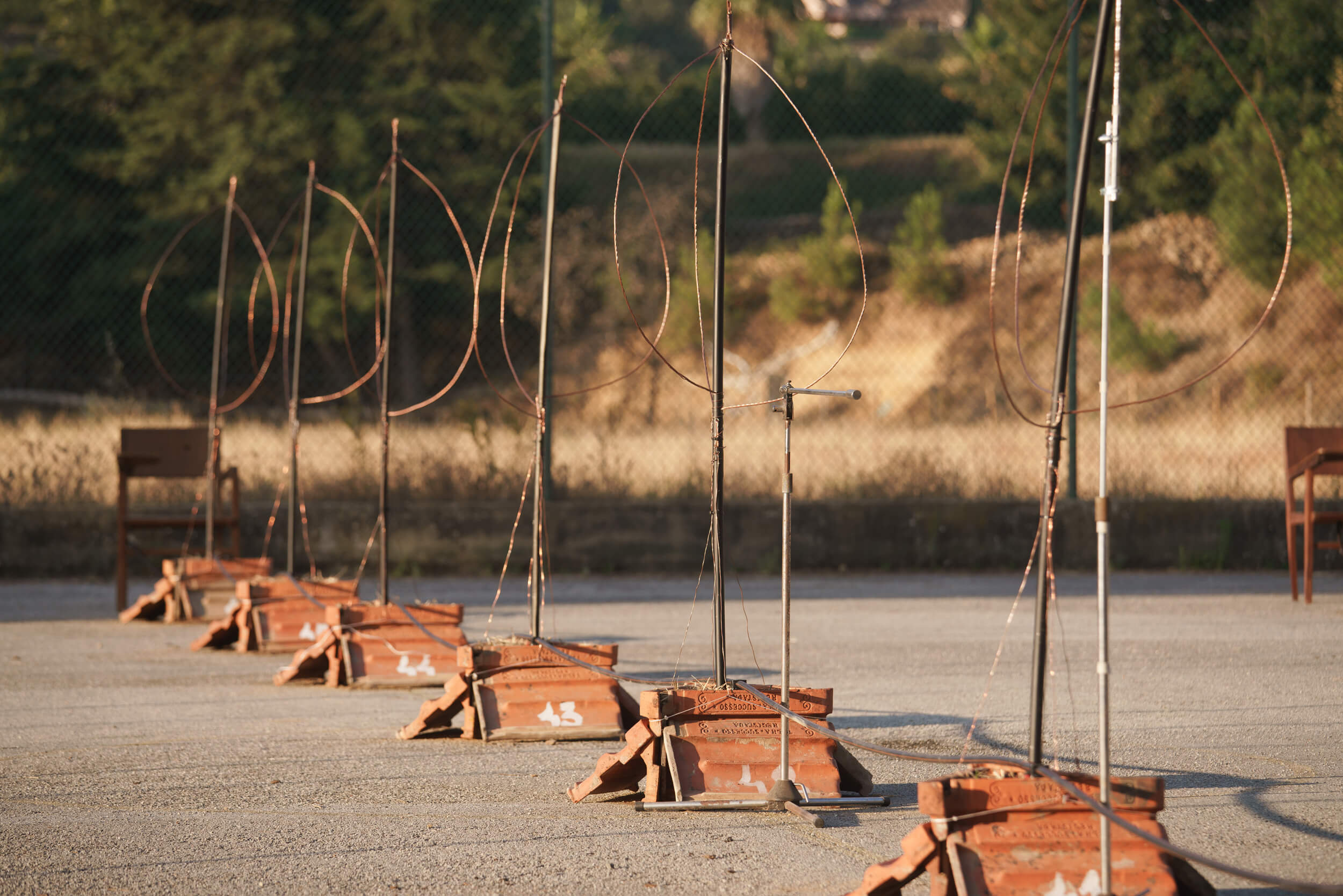
© Alexandre Delmar e Maria Ruivo
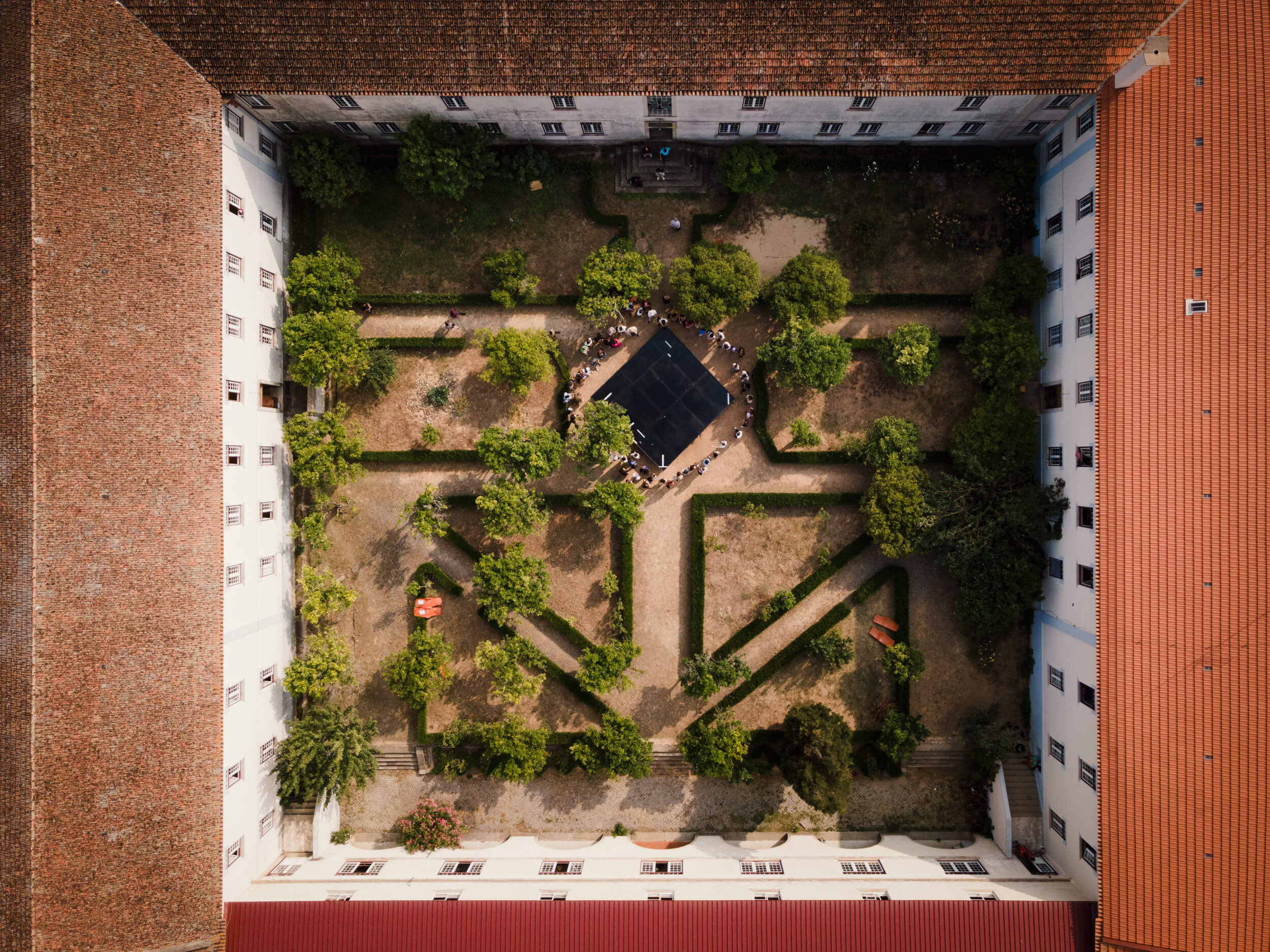
© Alexandre Delmar e Maria Ruivo
Over the course of fifteen days, in July 2023, the International Summer Seminar involved students from national and international universities, the seven Fertile Futures teams, and partners and local people, in field visits, conferences, workshops and the production of installations throughout the territory. Fundão became the focus of the seven Fertile Futures research laboratories, by virtue of the fact that it is affected by water scarcity, intensive agriculture, fires and desertification and, simultaneously, representative of investments in social inclusion and technological innovation.
The proposals presented at the end of the International Summer Seminar by the different teams resulted in exercises carried out together with the participants: Corpo Atelier proposed an architectural structure as a means of observing the landscape, in particular, the Zêzere River; Dulcineia Santos Studio used collaborative design to understand the different qualities of the soil and water lines; Guida Marques focused on Cabeço do Pião and the urgent need to repair the place of extraction, using affection, memory and concern for the defense of ecosystems; Ilhéu Atelier developed a site-specific installation, based on a verse by Eugenio de Andrade, who explored the enjoyment of the waters of the Alpeadre stream, on the Castelo Novo River Beach; Pedrêz carried out an electroculture experiment based on the potential of electromagnetism for a more sustainable development of agriculture in the region; Ponto Atelier resorted to the symbolic evocation of a water mirror as an element to connect places, memories and cultures; and Space Transcribers explored the storytelling as an instrument of architectural understanding, materialized in a performative path between the banks of the Zêzere River.
AUTO DA BARCA DE JANEIRO DE CIMA
Workshop por / Workshop by: Space Transcribers Tutores / Tutors: Daniel Duarte Pereira, Fernando P. Ferreira Participantes / Participants: Bruno Kenny Oliveira, Francisco Tellez Buitrago, Francisco Garvão, Paula Freitas, Ryota Sakai, Samanta Kajėnaitė, Silvia Garcia Sanchez, Unė Jonynaitė, Vasco Novoa
UNLEARN: DESIGNING THE LINE
Workshop por / Workshop by: Dulcineia Santos Studio Tutores / Tutors: Dulcineia Santos, Frederico Moncada, Jorge Abade, Georges Lieben Participantes / Participants: Eliza Ferreira Previato, Goda Padvelskyte, Juste Zvirblyte, Kong Jining, Luisa Frigolett Caballero, Luiza Carvalho, Roberto Costa da Matta
REPARAR/REPAIR
Workshop por / Workshop by: Guida Marques Participantes / Participants: André Mouro, Beatriz Cabral, Carolina Almeida, Eva Monteiro, Pedro Freire, Teresa Rivera
ELECTRO-TECTURE
Workshop por / Workshop by: Pedrêz Tutores / Tutors: Francisco Fonseca, Matilde Cabral Participantes / Participants: Laura Cazaban, Filipa van der Laan, Martim Neiva, Miguel Teodoro, Ricardo Garcia, Rodrigo Pereira, Gabriela Sanchez-Jara, Julia Froner, Margherita Prisco, Filipe Miranda, Alberto José
BEATRIZ
Workshop por / Workshop by: Corpo Atelier Tutores / Tutors: Filipe Paixão, Diogo Silva, Pietro Pucci Participantes / Participants: Ana Veloso Marques, Cristina Tasso, Esther Ampudia, Joana Fontes, Julia Garcia Sanjuan, Lee Tsz Hei, Sabrina Rodrigues, Victor Matas
FLUIR EM LUGAR DE SER PEDRA/TO FLOW INSTEAD OF BEING STONE
Workshop por / Workshop by: Ilhéu Atelier Tutores / Tutors: Afonso Botelho Santos, Rita Sampaio Participantes / Participants: Ana Ascensão, Ece Mulazimoglu, Eduarda Silva, Giovanni Zenere, Martim Mota, Sancho Manso, Maria Vitoria Seixas, Zaida Vasconcelos
FO[U]R
Workshop por / Workshop by: Ponto Atelier Tutores / Tutors: Ana Pedro Ferreira, Pedro Maria Ribeiro Participantes / Participants: Ana Carolina Peral, Ana Rita Souto, Erickson Fortes, Inês Salgueiro, João Jacinto, José Pedro Fernandes, Martina Catasta, Miguel Lopes, Peerada Liewchanpatana, Stephanie Ng
PARCEIROS / PARTNERS
Câmara Municipal do Fundão, Erasmus+, Universidade da Beira Interior, Faculdade de Arquitectura da Universidade do Porto
PROTOCOLOS / PROTOCOLS
Universidade da Beira Interior e/and Município do Fundão; Faculdade de Arquitetura da Universidade do Porto e/and Universidade da Beira Interior; Erasmus+ / Blended Intensive Programme: Coordenação científica / Scientific coordination: Andreia Garcia (UBI–DECA), Ana Neiva (FAUP); Mobilidade / Mobility: Escuela Técnica Superior de Arquitectura de Madrid (ETSAM), Vilnius Academy of Arts (VAV), Università Roma Tre
UNIVERSIDADES PORTUGUESAS PARCEIRAS / PORTUGUESE UNIVERSITIES PARTNERS
Instituto Universitário de Lisboa: Departamento de Arquitectura e Urbanismo da Escola de Tecnologias e Arquitectura (ISCTE-IUL); Instituto Superior Técnico de Lisboa — Área Científica de Arquitectura (IST); Universidade da Beira Interior: Faculdade de Engenharia — Departamento de Engenharia Civil e Arquitectura (UBI); Universidade de Évora: Escola de Artes — Departamento de Arquitectura; Universidade do Minho: Escola de Arquitectura, Arte e Design; Universidade Lusófona: Escola de Comunicação, Arquitectura, Artes e Tecnologias da Informação (UL-ECAATI); Universidade Lusófona: Faculdade de Comunicação, Arquitectura, Artes e Tecnologias da Informação (UL-FCAATI); Universidade Lusíada: Faculdade de Arquitectura e Artes; Universidade de Lisboa: Faculdade de Arquitectura (FAUL); Universidade do Porto: Faculdade de Arquitectura (FAUP)
UNIVERSIDADES INTERNACIONAIS PARCEIRAS/INTERNATIONAL UNIVERSITIES PARTNERS
Universidade Privada de Angola; KU Leuven — Faculty of Architecture; Escola da Cidade; M_EIA: Instituto Universitário de Arte, Tecnologia e Cultura — Cabo Verde; Universidade Jean Piaget de Cabo Verde; Universidad Católica Pontifícia de Chile: Facultad de Arquitectura Diseño y Estudios Urbanos; The University of Hong Kong: Faculty of Architecture; Technische Universitat München; Università Roma Tre; Polimi — Architecture and Urban Design; Kyoto University — Department of Architecture and Architectural Engineering; Vilnius Academy of Arts (VAV); Universidade Eduardo Mondlane; Design Academy Eindhoven (DAE); Escuela Técnica Superior de Arquitectura de Madrid (ETSAM); laSalle: Universitat Ramon Llull — Escola Técnica Superior d’Arquitectura; École Polytechnique Federal de Lausanne (EPFL); University of Arts, London (UAL); Technische Universiteit Delft (TU Delft)
FOTOGRAFIA / PHOTOGRAPHY
Alexandre Delmar, Maria Ruivo